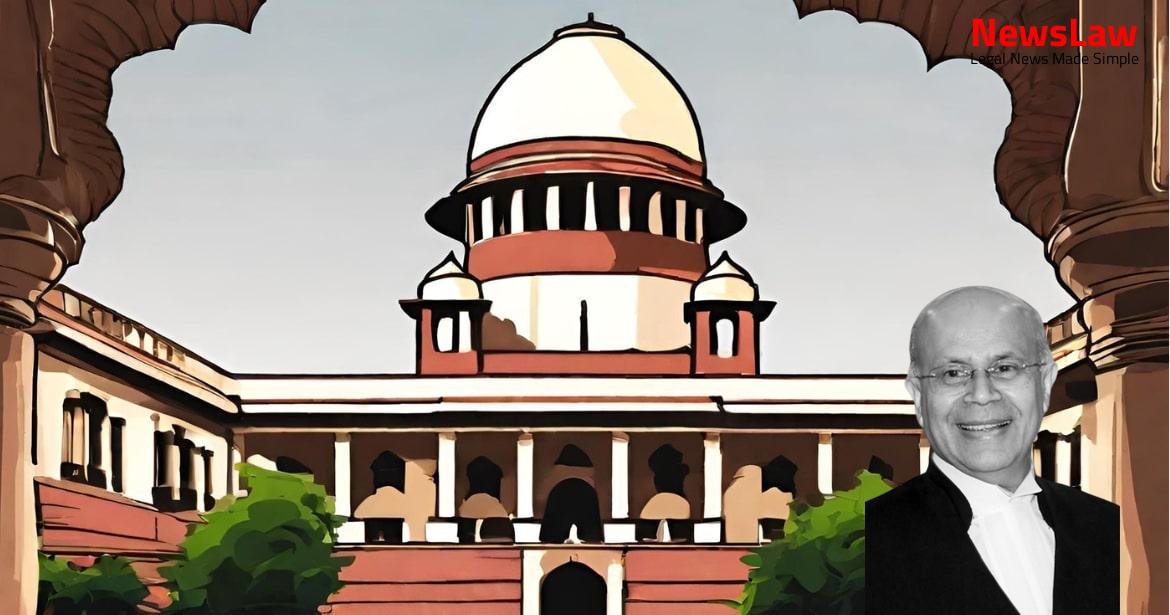Explore the complexities of interference with acquittal in criminal appeals as the court delves into the legal analysis. The case involves a detailed examination of evidence, particularly focusing on the reliability of extra-judicial confessions. Discover the stringent criteria that govern the overturning of acquittal verdicts, emphasizing the need for a strong legal basis for challenging such decisions.
Facts
- The respondent-accused was charged for offences under Sections 302 and 201 of the IPC.
- The prosecution alleged that the accused killed his wife with a lathi, dragged her 100 feet away from the house, and set her on fire to destroy evidence.
- The respondent-accused was convicted for the offence under Section 201 of the IPC and sentenced to three years’ rigorous imprisonment with a fine of Rs.100/-.
- The High Court acquitted the accused for the offences charged, reversing the trial court’s order of conviction.
- The present appeal challenges the High Court’s judgment acquitting the respondent-accused and reversing the trial court’s decision sentencing him to life imprisonment.
- The trial court initially convicted the respondent-accused under Section 302 of the IPC and sentenced him to life imprisonment with a fine of Rs.100/-.
- The respondent-accused preferred an appeal before the High Court.
- The State of Rajasthan has preferred an appeal before this Court.
Also Read: Presumption of Genuine Endorsements in Cheque Case
Arguments
- The appellant-State submitted that the extra-judicial confession made by the respondent-accused before Guman Singh (PW-4) is reliable and should inspire confidence in the judicial mind.
- Guman Singh (PW-4) was considered an independent witness as he had served in the police department, and there was no reason to doubt his testimony.
- The trial court had convicted the respondent-accused based on the evidence of Guman Singh (PW-4), and the High Court’s interference was unjustified according to the appellant-State.
- Hamira Ram (PW-7) has been declared hostile but part of his testimony related to extra-judicial confession is considered trustworthy
- The testimony of Guman Singh (PW-4) corroborates the testimony of Hamira Ram (PW-7)
- The impugned judgment by the High Court should be set aside
- The judgment of the trial court should be confirmed
Also Read: Medical Negligence and Compensation: A Landmark Decision
Analysis
- Hamira Ram (PW-7) turned hostile, casting doubt on the prosecution’s case.
- The only remaining evidence is the extra-judicial confession allegedly made by Guman Singh (PW-4).
- The trial court disbelieved the alleged recovery of incriminating material at the instance of the accused.
- The appellate court should not set aside an order of acquittal based on a mere probability of conviction.
- Interference with an acquittal is only warranted if the view taken is impossible or perverse.
- The scope of interference in an appeal against acquittal is very limited.
- The High Court extensively examined the evidence before making its decision.
- The High Court relied on the judgment in the case of State of Punjab v. Bhajan Singh and Others.
- The High Court also considered the case of Gopal Sah v. State of Bihar.
- It was held that extra-judicial confession is a weak piece of evidence.
- Conviction solely on the basis of extra-judicial confession cannot be sustained without corroboration.
- High Court’s view is not impossible or perverse
- No justification for interference with the impugned judgment
Also Read: Remand of Writ Petition for Restoration and Decision on Merits
Decision
- Pending application(s) disposed of accordingly
- No merit found in the appeal
- The appeal is dismissed
Case Title: THE STATE OF RAJASTHAN Vs. KISTOORA RAM (2022 INSC 760)
Case Number: Crl.A. No.-002119-002119 / 2010



